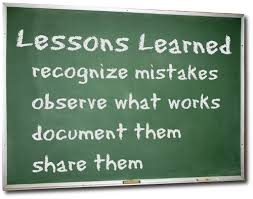 Overview
Overview
A major financial organization is planning a major move to consolidate its business units to a central location in metro Atlanta. The business units have been spread over 4 commercial office campuses within a 2 – 6 mile radius of one another. With the growth of the organization and the need to reduce the rising cost of commercial leases the organization launched a facilities consolidation effort. This effort is scheduled to take approximately 2 years to complete.
Project Setting
I was assigned to the project in the Perform phase, 3 months prior to the Close phase. My role was defined as the Technical Writer tasked with documenting the business units computer labs requirements for the move to the new office facility. I was back filling a position for a person that was asked to leave the organization abruptly. The challenge with this scenario is the person that was responsible for transferring the project knowledge and status to me had limited knowledge of the project coordination and the documentation effort. Starting the project in the Perform phase without extensive background knowledge to answer the following questions placed me at a disadvantage.
Can the project be done? (Portny et al., 2008, p. 77)
Should the project be done? (Portny et al., 2008, p. 77)
I also did not receive the details on the project plan that was outlined in the Define phase. Having the knowledge of the roles of the team members, a listing of all work to be performed, results to be produced along with the assumptions and risks would have really supported my understanding of the project and my role and responsibilities (Portny et al., 2008, pgs. 78 – 79). Also my absence from the commencement of the Start phase resulted in a vague understanding of the role assignments for the project, the PM’s description of tasks to the team members, and the PM’s description of the necessary tasks to complete the assigned work. My absence from the launch meeting facilitated by the PM limited my awareness of the other project team members (Portny et al., 2008, p. 79). The PM was located in the Midwest. The PM conducted weekly conference call meetings to obtain the status of the project from the team members. By the time I joined the project the momentum and attitude of the project team members was waning. So it was difficult for the PM to conduct weekly status meeting that were effective without key team members participation. In the last 4 weeks of the project I discovered that my primary task was to serve as the project coordinator gathering network and telecom requirements from the business unit owners and reporting my efforts back to the PM. I facilitated conference call meetings with the business unit owners and the network and telecom engineers. The objective of the conference calls were to ensure that the requirements were clearly identified and implemented prior to the move, and that the business units had the support they needed on the move day.
Based on the PM’s role I believe the project was successful. However, effective communication was not sustained between the business owners, the PM and the network and telecom engineers do to the change in resources in the Perform phase (my initiation to the project). The PM was challenged with the fact that I was unable to come in and continue the work that the previous resource had performed and that I was not provided with a description of my tasks and responsibilities. There was an obvious disconnect between what the PM’s expectations were for the transfer of knowledge to me in an effort to continue the tasks and required duties of this role
As the Project Coordinator if I had a better understanding of my tasks when I began the job I would have looked back at the basis for the project feasibility and desirability in the Conceive phase (Portny et al., 2008, p. 80). I would have asked more questions about the project team resources and their responsibilities. I believe this information would have helped me get acclimated to the details of the project and perform my tasks in a confident and quality manner.
Resources
Portny, S. E., Mantel, S. J., Meredith, J. R., Shafer, S. M., Sutton, M. M., & Kramer, B. E. (2008). Project management: Planning, scheduling, and controlling projects. Hoboken, NJ: John Wiley & Sons, Inc.
Blogs I Responded To
Melissa Burr’s Blog
Barbara Morris Blog

Hi Leslie,
Great post “Learning from a Project “Post-mortem”.
In response to: “Based on the PM’s role I believe the project was successful. However, effective communication was not sustained between the business owners, the PM and the network and telecom engineers do to the change in resources in the Perform phase (my initiation to the project). ” (Harmon, 2016).
The project manager should always be aware of how to apply different forms of communication. Portny, Mantel, Meredith, Shafer, Sutton, & Kramer (2008) said that, “The key to successful project management is effective communication – Sharing the right messages with the right people in a timely manner. Through communication people exchange and share information with one another, and influence on another’s attitudes, behaviors, and understandings” (p. 357).
References:
Portny, S. E., Mantel, S. J., Meredith, J. R., Shafer, S. M., Sutton, M. M., & Kramer, B. E. (2008). Project management: Planning, scheduling, and controlling projects. Hoboken, NJ: John Wiley & Sons, Inc.
Harmon, L. (2016), Blog Assignment: Learning from a Project “Post-mortem”, Walden University.
LikeLike
Great post! Starting the project from the perform stage, did you feel you had to work 3 times as hard to catch up in parallel to moving forward? In addition, did the Project Manager meet with you to bring you up to speed? Was there additional communication to ensure the project moved forward with limited interruption? I find that coming into a project that late results in a lot of resistance from the people I have to work with, and I have also experienced having to ensure them just because I am asking questions to catch up does not mean the project is moving backwards. I just need to be brought up to speed. I have actually had clients apologize for their abruptness after a meeting due to the fact that I was asking questions, and they felt like we were moving backwards. I had to reassure them the project is moving forward I am just getting up to speed. Thanks!
Melissa
LikeLike
Hi Melissa,
The major challenge with this project is that I really did not understand my role until very late in the project. I was hired to be a Technical Writer and there was very little writing that took place for this role. The PM did have a conversation with me about what the previous person had done and let me know that I needed to pickup where that person left off. However, the documentation that was available for me to review was unavailable for 2 weeks because it had been zipped with a program that the company did not have for me to unzip the files with. Since it was a financial company they were very strict about loading software to the laptop unless approved by the security department. Once I gained access to the files they were pretty obsolete. I ran into some of the same problems you mentioned in your response. I received resistance from the business unit owners because they had to provide me with the same information that they had provided multiple times before. Communication was inconsistent and very ineffective. It was pretty frustrating having to explain to the business unit owners why I was requesting the same information once again . . . I finally realized very late in the project that my role was to coordinate the computer lab move logistics for the business units and facilitate a conversation between the network and telecom engineers and the business units. Whew! That was tough!
Leslie
LikeLike
Hi Leslie,
What a predicament! From the sound of it, it didn’t seem like the PM put a lot of attention into detail, especially considered that the project was long term. Or at least it was done poorly. ‘Responding to Reality’ as Portny et al. mentioned is something the PM’s need to account for. All key players or roles involved in the beginning of the project are not guaranteed to be around the entire life span of a project, and that’s an obvious truth. I agree with you, that if the PM would have effectively communicated more, your tasks and responsibilities may not have been so strenuous.
That was a great example. Thank you so much for sharing!
LikeLike
Sorry! I forgot to cite my reference.
Portny, S. E., Mantel, S. J., Meredith, J. R., Shafer, S. M., Sutton, M. M., & Kramer, B. E. (2008). Project management: Planning, scheduling, and controlling projects. Hoboken, NJ: John Wiley & Sons, Inc.
LikeLike
Hey Leslie,
Your post has all kinds of fun challenges going on. One thing that I don’t think we have spent a lot of time focusing on just yet is the virtual aspect you were working with in your project. I have found more and more this is the case in my organization. In fact, I can’t think of one project I have been a part of in the last 5 years that didn’t have virtual team members in the project. I can’t think of one occasion where I was even in the same state as the project manager. That being said, like many other fields, project managers are going to have to become more and more accustomed to working with people that are not in the same state, time zone, or even country. This opens a whole other can of worms when it comes to things that project managers need to do to ensure they are fully prepared for their role. Its adds a different type of complexity when considering effective communication, managing tasks and responsibilities, and building relationships with key project members. Are you finding the same holds true in your own organization?
Erica
LikeLike
Hi Leslie,
This is a great post, and example, thank you for sharing! From what I am gathering in my reading, your PM didn’t communicate clearly to you your role and the scope of project. You coming in near the end of the project had to be a really difficult aspect, as well, I would think that it would be difficult to jump in, try to catch up, all the while running to keep the project moving forward. It appears this project might have benefited from a more defined project plan and better communication.
Dealing with a waning team and a PM not in the location also seemed to be items that were possibly not considered. These items are not always project-enders if they are in the right, and capable hands of a good PM.
LikeLiked by 1 person